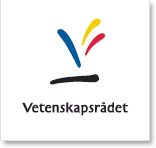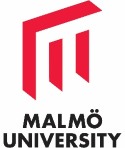Scandia utblick: The Nordic Countries and Holocaust Historiography
From Exception to Democratic Foundation
DOI:
https://doi.org/10.47868/scandia.v90i2.27279Keywords:
Holocaust, memory, historiography, Nordic countries, historical cultureAbstract
Something that all Nordic countries have in common is that journalistic work, popular culture phenomena and public debates resulting in subsequent political initiatives have served as driving forces in the development of academic research on the Holocaust. It is also clear that the field is heavily politicized, imbued with moral questions and highly diversified.
The memories of the Holocaust have in all Nordic countries been filtered through existing post-war narratives about the nation. In Norway, this has mainly concerned the wound inflicted by the Quisling regime and the Nazi occupation and, based on that, the resistance movement, the authorities and the role of the police force. In Finland, the construction of a collective memory has occurred in relation to Finland’s relationship with the Soviet Union. The Holocaust was not seen as part of Finnish history. In Denmark, the Danish national heroic story of the rescue of the Danish Jews was instrumental for how the Holocaust was to be remembered and understood. For Sweden, a strongly forward-looking neutrality and welfare narrative has long displaced the fact that Sweden also constitutes a part of the history of the Holocaust.
However, the strong national narratives have been challenged both within and outside the academy, primarily based on European, global and moral values, in addition to values critical of modernity. Slowly, the memory of the Holocaust has evolved from being seen as a less relevant event to an obvious cultural memory integrated into questions of democracy, guilt, morality and human rights. The memory of the Holocaust has also become a political tool and thereby a battlefield for the construction of identity.
This research field is faced with a number of future challenges related to the fact that the generation experiencing the Holocaust soon will be gone as well as the question to what extent the obvious position of the Holocaust in many instances, for example in school, will persist. Current Holocaust research is in many ways the result of a changing world system in which the bipolar, cold war system has been replaced by a multipolar system in which other historical perspectives were and are seen as urgent. At the same time, the national narratives have made a great comeback, which contributes to increasing tensions regarding what should be considered important history. Holocaust research is situated in the middle of these historical currents.
Downloads
Published
Issue
Section
License

This work is licensed under a Creative Commons Attribution-NonCommercial 4.0 International License.





